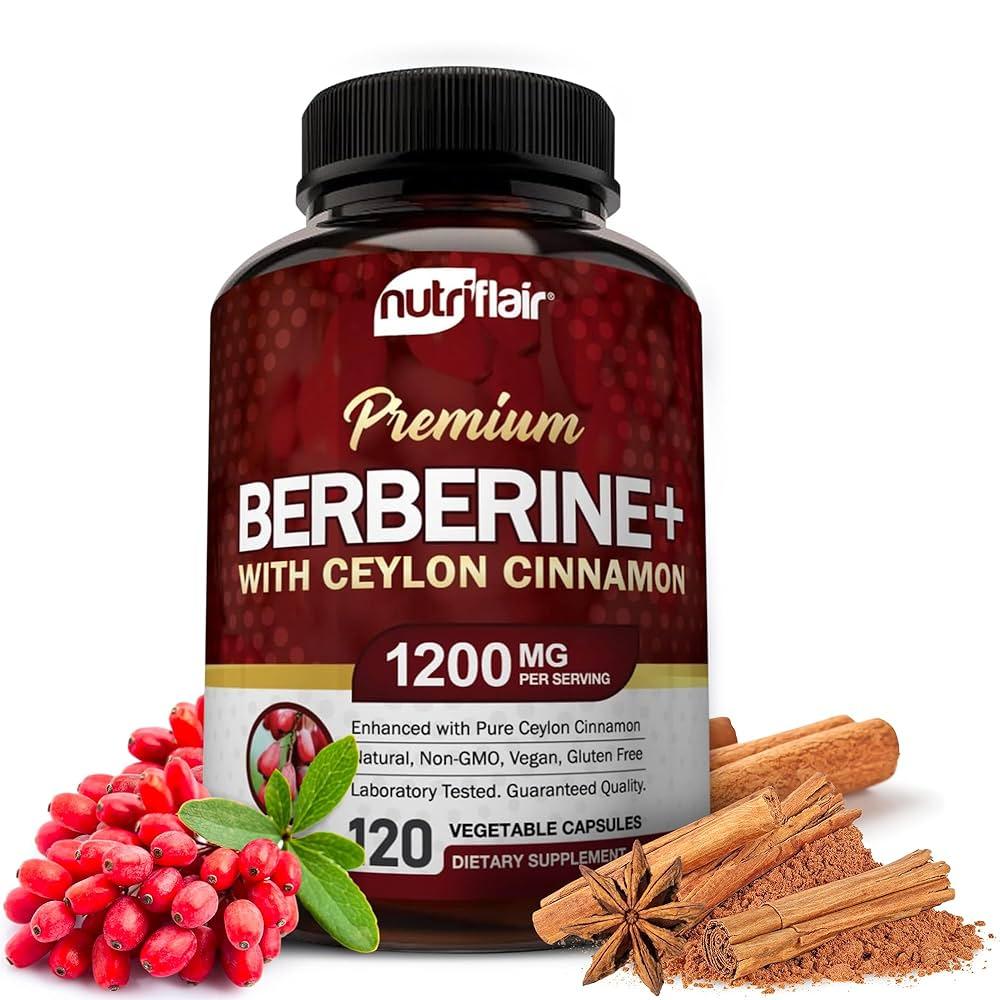In our relentless pursuit of improved health and well-being, the quest for natural compounds that can bolster metabolic function and enhance glucose management has garnered significant interest. Among these promising substances, berberine hydrochloride (HCl) stands out, a potent alkaloid extracted from various plants that has been revered in traditional medicine for centuries. As modern science begins to unveil the intricate mechanisms through which berberine influences metabolic health, its role becomes ever more crucial in contemporary discussions surrounding diabetes management, weight control, and overall vitality. This article delves into the interesting world of berberine HCl,exploring its biochemical pathways,potential health benefits,and emerging research that sheds light on its applications in supporting metabolic health and stabilizing blood sugar levels. Join us on this enlightening journey as we uncover the power of berberine and its implications for a healthier future.
Understanding Berberine HCl: A Powerful Compound for Metabolic Health
Berberine HCl,a naturally occurring compound found in various plants,has been gaining attention for its role in supporting metabolic health and managing glucose levels.This potent alkaloid works through several mechanisms in the body, primarily targeting insulin sensitivity and lipid metabolism. Research suggests that berberine can help to balance blood sugar levels, making it a promising supplement for those with insulin resistance or type 2 diabetes. Its ability to enhance glycolysis and regulate glucose production in the liver further solidifies its reputation as a powerhouse in metabolic regulation.
Moreover, berberine’s multifaceted benefits extend beyond glucose control. It has been shown to promote weight loss by improving fat metabolism and decreasing fat cell growth. This compound also possesses anti-inflammatory properties, which can help mitigate chronic inflammation often associated with metabolic disorders. Key benefits include:
- Improved insulin sensitivity
- Regulated cholesterol levels
- Weight management support
- Enhanced gut health
As scientific interest continues to grow, more studies are likely to explore the full range of berberine’s effects on metabolic health, helping to reinforce its role as a valuable ally in the fight against diabetes and obesity.

Mechanisms of Action: How Berberine HCl Influences Glucose Metabolism
Berberine HCl operates through a multifaceted approach to influence glucose metabolism effectively. Primarily, it enhances insulin sensitivity, which allows cells to utilize glucose more efficiently and reduces blood sugar levels. This action is mediated by the activation of the AMP-activated protein kinase (AMPK), a crucial energy-sensing enzyme that plays a central role in lipid and glucose homeostasis. By stimulating AMPK, berberine promotes glucose uptake in muscle cells and minimizes hepatic glucose production.
Additionally, berberine HCl has been shown to alter the gut microbiota, leading to improved metabolic functions.This microbial modulation can influence various metabolic pathways, enhancing gut health and promoting better nutrient absorption. The interaction between berberine and gut microbiota may also produce short-chain fatty acids (SCFAs), which are known to have positive effects on inflammation and satiety. Key interactions include:
- increased insulin sensitivity
- reduction in hepatic glucose production
- Promotion of healthy gut microbiome

Clinical Insights: Evidence-Based Benefits of Berberine HCl for Diabetes management
Berberine HCl has garnered significant attention for its potential role in diabetes management, particularly through its ability to enhance insulin sensitivity and regulate blood sugar levels. Research suggests that berberine activates AMPK (AMP-activated protein kinase), a vital enzyme in cellular energy homeostasis, leading to improved glucose uptake in muscle and fat tissues. This mechanism not only aids in lowering fasting blood glucose but also stimulates glycolysis while inhibiting gluconeogenesis in the liver. The multifaceted action of berberine on the metabolic pathways presents an appealing therapeutic option for those seeking to manage their diabetic condition through natural means.
Several clinical studies highlight the noteworthy benefits of berberine HCl in glucose control, showcasing its efficacy paired with lifestyle modifications. A summary of these findings includes:
- reduction in HbA1c Levels: Participants showed a significant decrease in HbA1c, suggesting better long-term glucose management.
- Improved Lipid Profiles: Patients reported favorable changes in cholesterol and triglyceride levels alongside blood sugar improvements.
- Weight Management: Users frequently experienced weight loss,which is beneficial for overall metabolic health.
Notably, a
| Study | Findings |
|---|---|
| 2020 Meta-Analysis | Average HbA1c reduction of 1.0% |
| 2019 randomized Trial | Average weight loss of 5 kg over 12 weeks |
highlights that the incorporation of berberine HCl in diabetes management protocols significantly contributes to both metabolic advancement and patient compliance, paving the way for further research and potential integration into standard treatment regimens.

Practical Recommendations: Integrating Berberine HCl into a Healthier Lifestyle
To effectively incorporate Berberine HCl into your daily routine, consider the following strategies that align with a commitment to a healthier lifestyle:
- Dose Responsibly: Begin with a lower dosage of Berberine HCl, such as 500 mg, taken two to three times a day. Gradually increase the dosage based on your body’s response and guidance from a healthcare professional.
- Timing is Key: Ideally, take Berberine HCl before meals. This timing can definitely help modulate glucose levels more effectively and support metabolic processes.
- Stay Hydrated: Ensure adequate hydration throughout the day.Water plays a vital role in the absorption and efficacy of supplements, including Berberine HCl.
- Monitor Blood Sugar Levels: Keep track of your glucose levels to assess how your body reacts to Berberine HCl.Regular monitoring can provide insight into its effectiveness in your regimen.
Pairing Berberine HCl with a balanced diet and regular physical activity can maximize its benefits. Consider the following dietary tips and lifestyle choices:
| Food Choices | Benefits |
|---|---|
| High-Fiber Foods (e.g., vegetables, whole grains) | Help stabilize blood sugar levels. |
| Lean Proteins (e.g., fish, chicken) | Support muscle health and metabolic function. |
| Healthy Fats (e.g., avocados, nuts) | Promote satiety and balance blood sugar. |
- Engage in Regular Exercise: Aim for at least 150 minutes of moderate aerobic activity each week, paired with strength training exercises.
- Get Enough Sleep: Prioritize quality sleep to enhance your body’s ability to regulate insulin and maintain metabolic health.
In Retrospect
the exploration of berberine HCl unveils a compelling narrative entwined with metabolic health and glucose management. This ancient botanical compound, with roots steeped in traditional medicine, is carving a niche in modern health discourse as a potent ally in the fight against metabolic disorders. As research continues to unravel its complex mechanisms, the potential benefits for those seeking balance in their glucose levels are becoming increasingly apparent.
However, while the allure of berberine HCl is strong, it’s essential to approach its use with a discerning eye—acknowledging that, like any supplement, it functions best as part of a holistic lifestyle encompassing diet, exercise, and mindfulness. As we stand on the brink of further discoveries, the promise of berberine serves as a reminder of nature’s wisdom and the importance of integrating time-honored remedies into contemporary wellness strategies.
for those navigating the intricate landscape of metabolic health, berberine HCl presents a beacon of hope, illuminating a path towards better health. As we close this chapter on its analysis,the journey of inquiry continues—driving us to dig deeper into the science that shapes our understanding of health and well-being.






